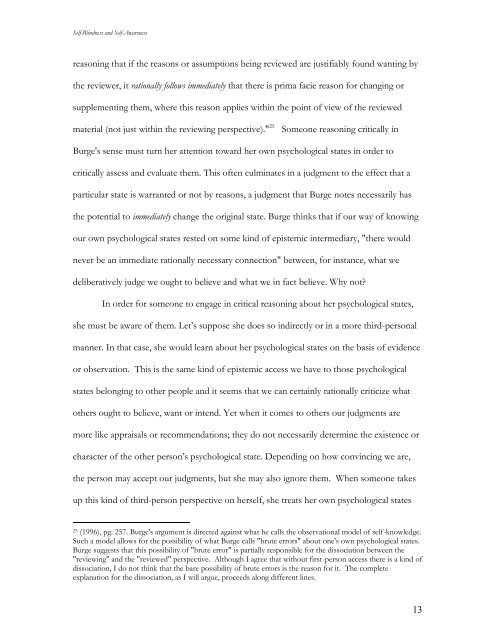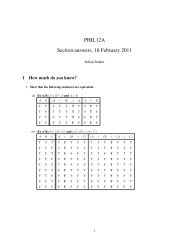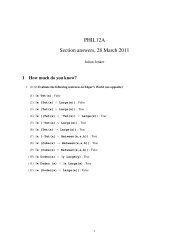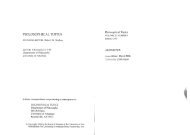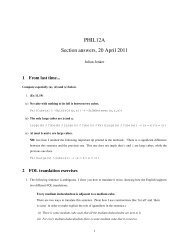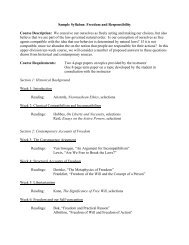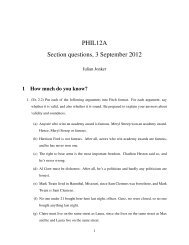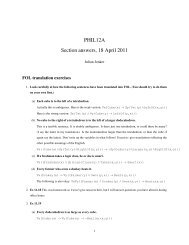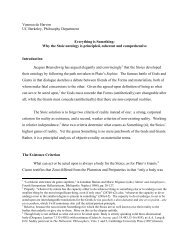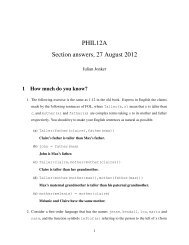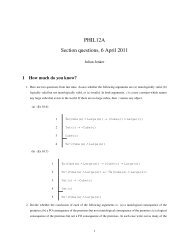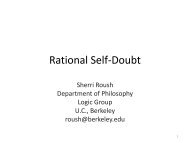SELF-BLINDNESS AND SELF-AWARENESS - Philosophy
SELF-BLINDNESS AND SELF-AWARENESS - Philosophy
SELF-BLINDNESS AND SELF-AWARENESS - Philosophy
Create successful ePaper yourself
Turn your PDF publications into a flip-book with our unique Google optimized e-Paper software.
Self-Blindness and Self-Awarenessreasoning that if the reasons or assumptions being reviewed are justifiably found wanting bythe reviewer, it rationally follows immediately that there is prima facie reason for changing orsupplementing them, where this reason applies within the point of view of the reviewedmaterial (not just within the reviewing perspective)." 25Someone reasoning critically inBurge's sense must turn her attention toward her own psychological states in order tocritically assess and evaluate them. This often culminates in a judgment to the effect that aparticular state is warranted or not by reasons, a judgment that Burge notes necessarily hasthe potential to immediately change the original state. Burge thinks that if our way of knowingour own psychological states rested on some kind of epistemic intermediary, "there wouldnever be an immediate rationally necessary connection" between, for instance, what wedeliberatively judge we ought to believe and what we in fact believe. Why not?In order for someone to engage in critical reasoning about her psychological states,she must be aware of them. Let’s suppose she does so indirectly or in a more third-personalmanner. In that case, she would learn about her psychological states on the basis of evidenceor observation. This is the same kind of epistemic access we have to those psychologicalstates belonging to other people and it seems that we can certainly rationally criticize whatothers ought to believe, want or intend. Yet when it comes to others our judgments aremore like appraisals or recommendations; they do not necessarily determine the existence orcharacter of the other person’s psychological state. Depending on how convincing we are,the person may accept our judgments, but she may also ignore them. When someone takesup this kind of third-person perspective on herself, she treats her own psychological states25 (1996), pg. 257. Burge's argument is directed against what he calls the observational model of self-knowledge.Such a model allows for the possibility of what Burge calls "brute errors" about one's own psychological states.Burge suggests that this possibility of "brute error" is partially responsible for the dissociation between the"reviewing" and the "reviewed" perspective. Although I agree that without first-person access there is a kind ofdissociation, I do not think that the bare possibility of brute errors is the reason for it. The completeexplanation for the dissociation, as I will argue, proceeds along different lines.13


